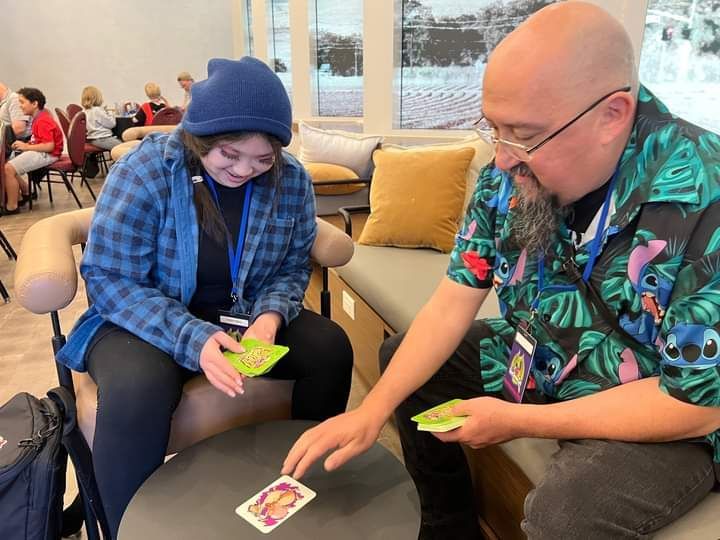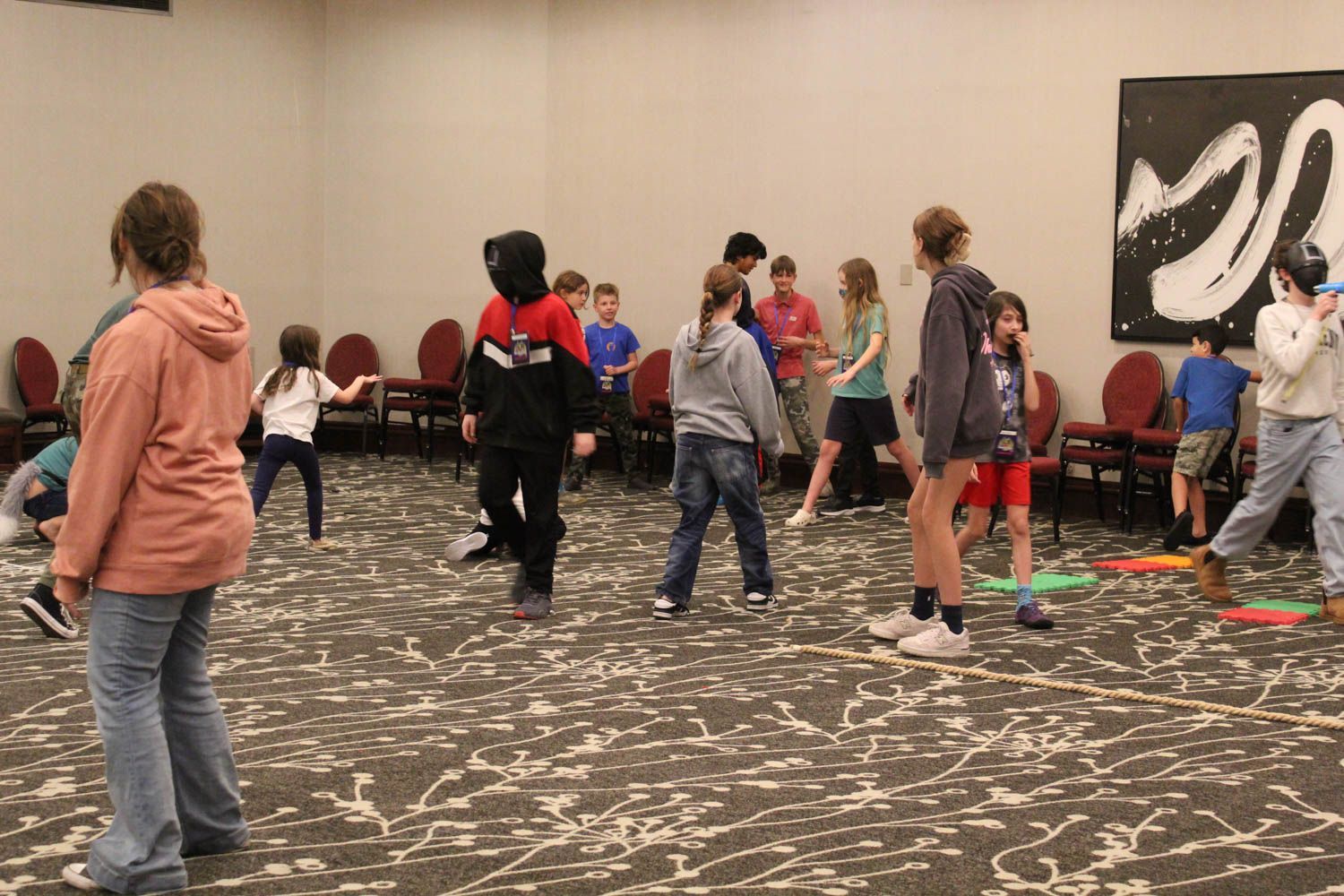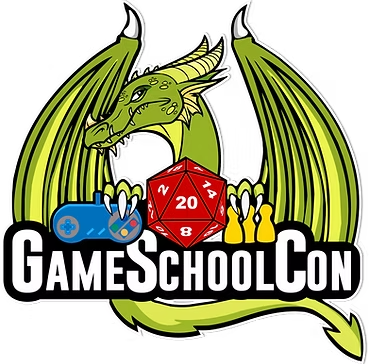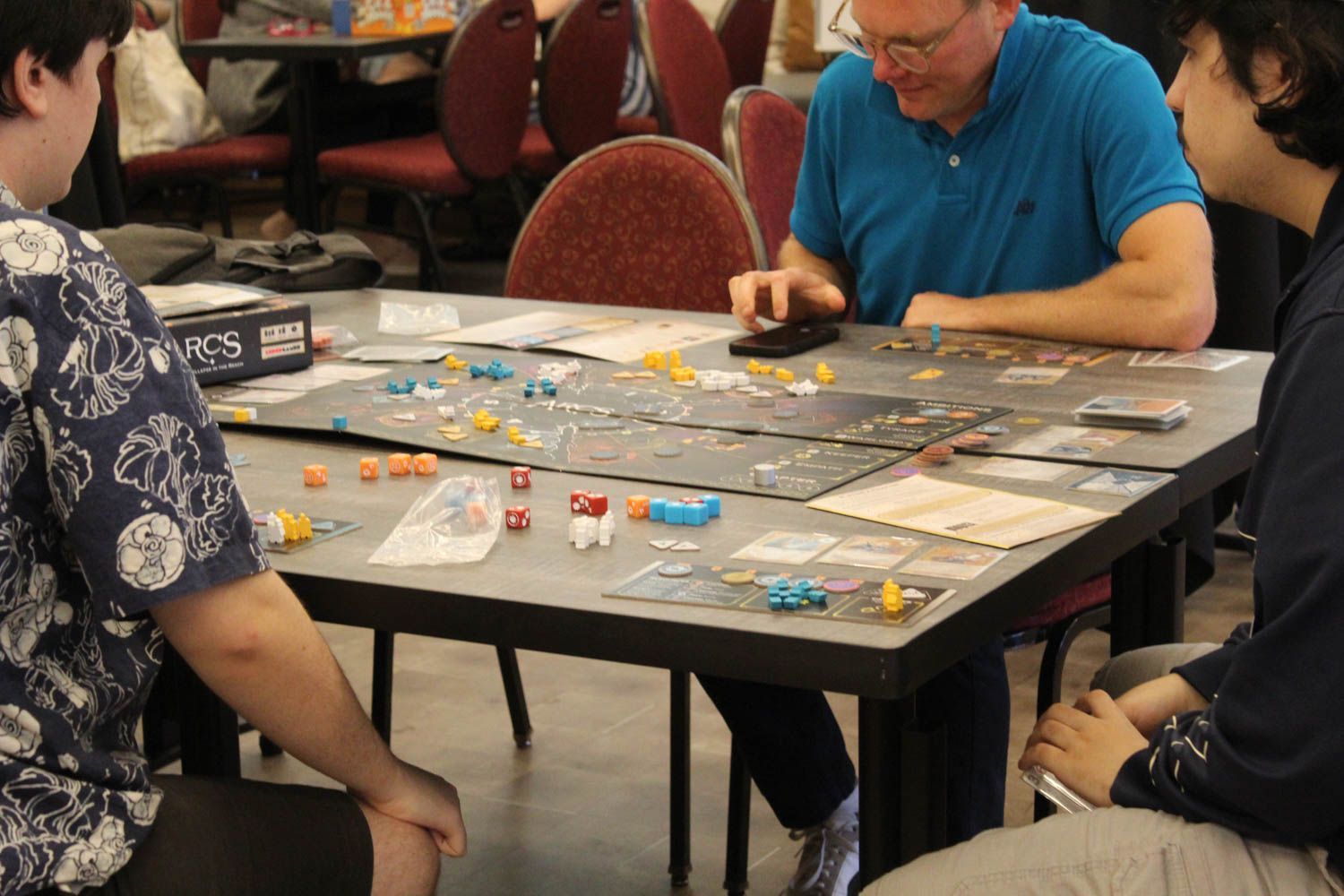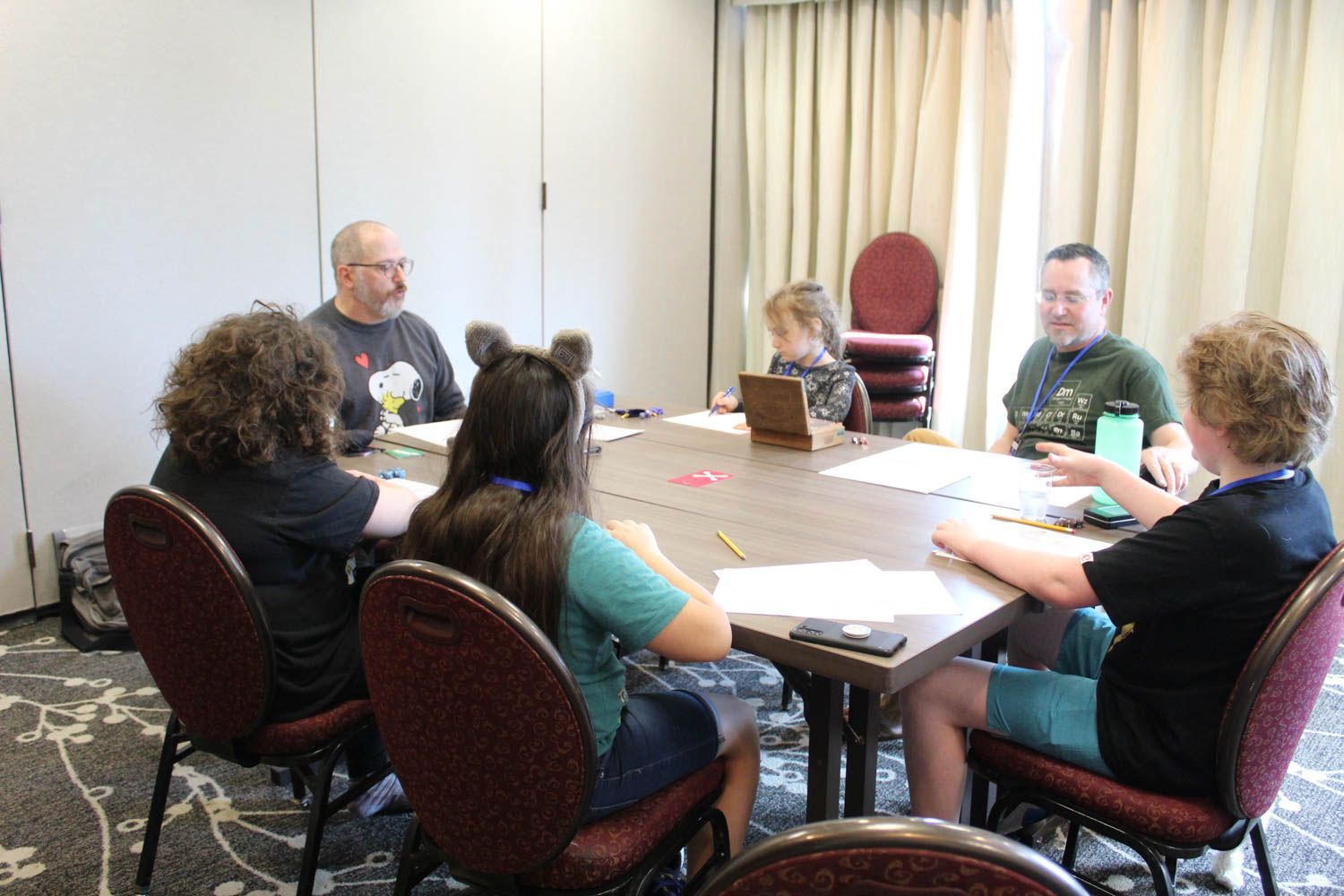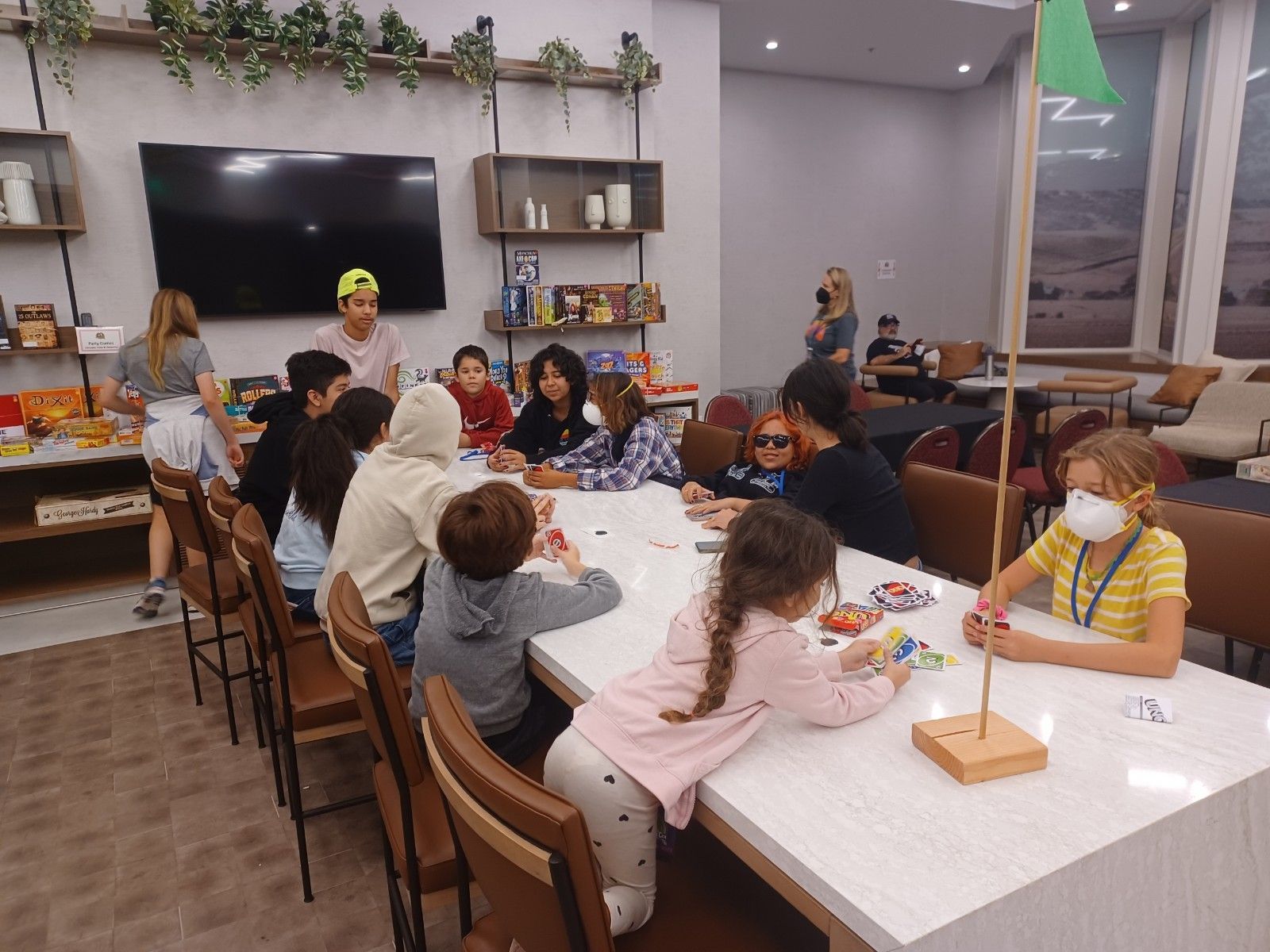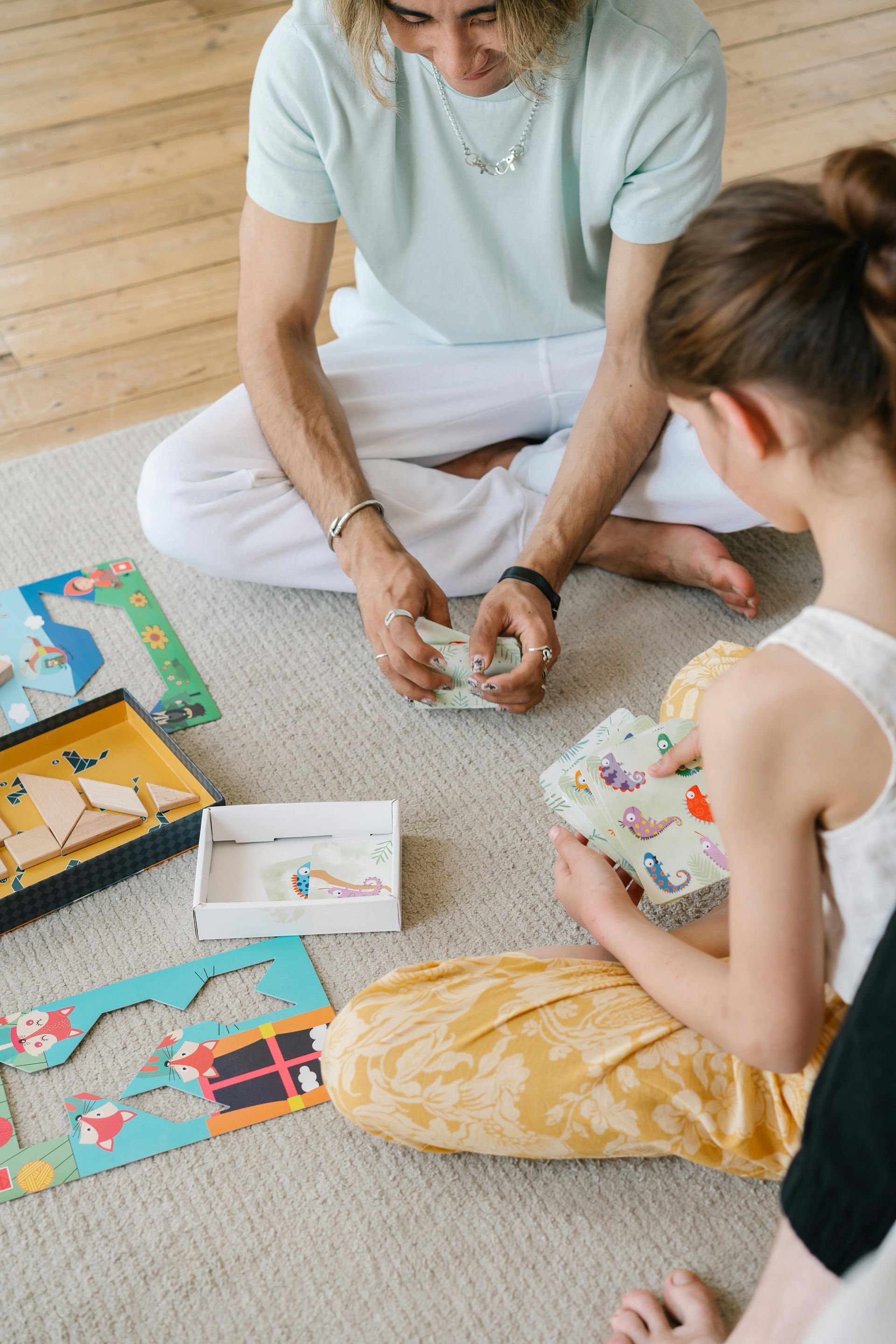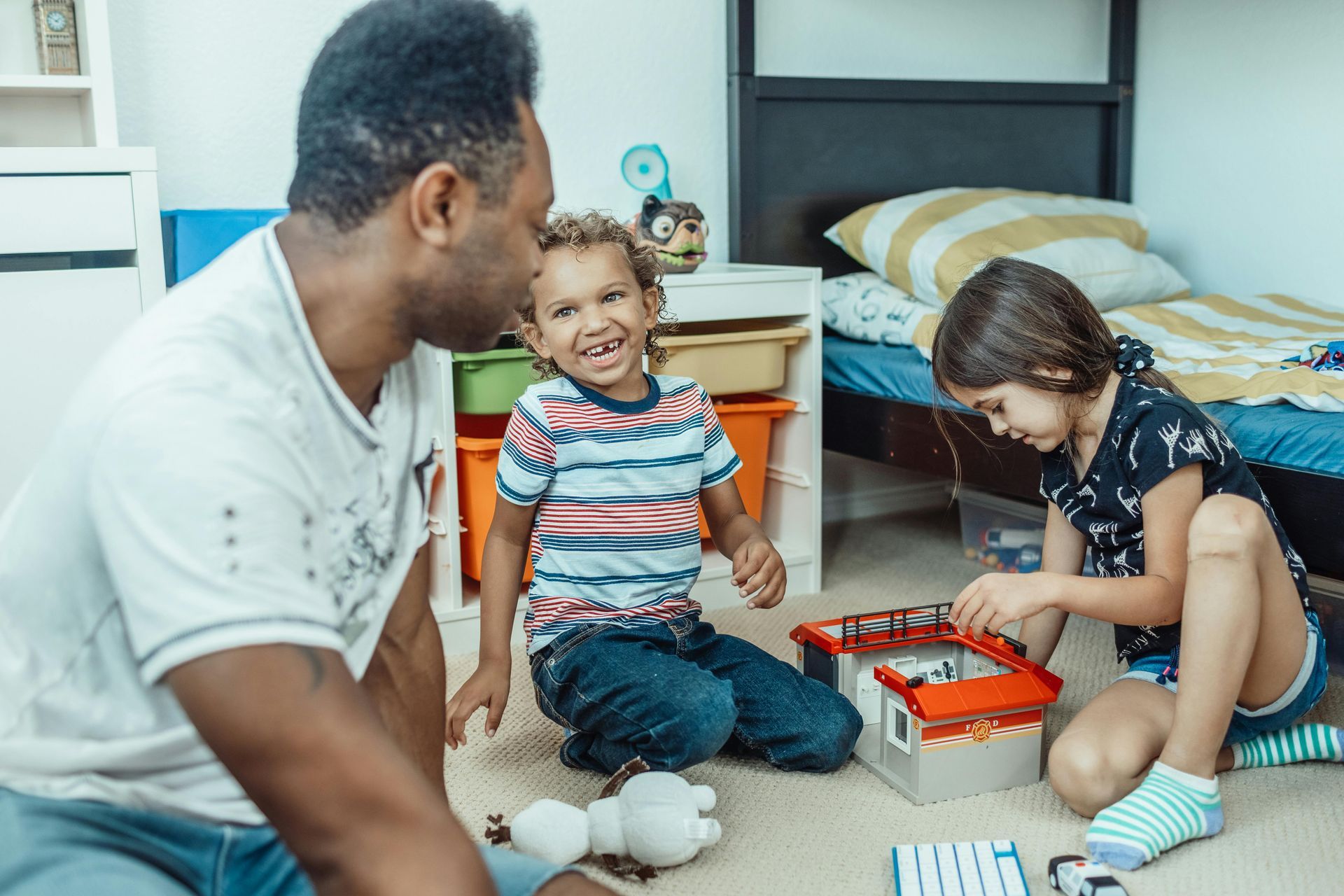February 19-22, 2026
Making the Space: How Games Bring People Together
Alex Cook • October 28, 2025
There is a stereotype that games are isolating forms of entertainment, especially once you leave the realm of family board games and playing house, and move to video games. When you are staring at a screen, it's easy to feel lonely. What I am here to tell you today is NOT a list of fun games to play with the family or about how playing games can help with social anxiety. Instead, I am here to share with you the most potent part of games, the community they create, without ever having to roll a d20 or pick up a controller. This is how games can bring people together without playing them. Hopefully, by the time you finish reading this blog post, you'll feel ready to create or engage in your own spaces with the power of games!
This post was created in collaboration with Unschooling Mom2Mom, a supportive community helping families embrace self-directed education with confidence and joy. Together, we wanted to explore how gaming brings people together. This is part of a two-part series of blogs about gaming clubs and community. Over at Unschooling Mom 2 Mom, we are covering how to start a club. Here on GameSchoolCon, we are covering why gaming clubs are a good idea and how games create community.
Games are excellent at building community because of 3 core attributes that break down most social barriers and lead to long, fun, and engaging conversations. These attributes are Discussion, Time-Investment, and Shared Passion.
Discussion
With the advent of social media came the ability to discuss games with anyone across the world. But even before the internet, people were using games to spark discussion among strangers and start conversations!
Games are great for starting conversations because they're a common interest that comes with built-in icebreakers. If you find out someone plays Dungeons and Dragons, you immediately have a series of questions you can ask to learn more about them and create enjoyable small talk. “What was your last character?” “Which class is your favorite?” etc.
This is why branded t-shirts and media merchandise are so popular. A Pokémon sticker is a conversation starter; it signals a shared interest, instantly piercing the awkward social barrier many kids struggle with as they enter their teenage years.
Time-Investment
Depending on the game, a lot of time can be spent on activities outside the game. Take video games, for example. In a fighting game, a significant amount of time can be spent going to tournaments. In a first-person shooter, you might spend time watching tutorials or your favorite streamers play, and even something as calm as Minecraft has a vast community of people making discoveries and sharing them online.
The time people invest in games provides a natural excuse to connect with others. A common cause of anxiety for Gen Z is “wasting their time.” Do you
really want to be the person pulling people away from their weekend to hang out? But games already require time investment, and that time invested is spent engaging with others. You already came out to a tournament, why not socialize? If you are trying to improve your skills, why not sit down and share tips? Suddenly, that weekend hangout is in everyone's best interest cause you are just doing your original plans together!
Shared Passion
Let’s not kid ourselves, games are fun! They inspire passion in us, and we just like to talk about them. Whether it's stories from past games, the excitement of starting a game, or looking to the future of a game, we are eager to talk about games at any given opportunity.
Sharing that passion is healthy and necessary. But the best part about that shared passion is that you never have to worry about whether people
want to be there. If you have found a game you are both interested in, your conversations are guaranteed to be filled with energy and excitement!
It also means people will go out of their way to talk with you. People will take any excuse to share their passion. If you start a group chat, start a gaming club, or invite people to an event, people will show up because they want to share that passion as much as you do.
From Players to Community Builders
The time-investment inherent to games encourages spending time with others; the discussions they create make conversation easy, and the shared passion guarantees those conversations will be fun! These three attributes of games make them naturally great at forming community, and give us a clear understanding of how we can bring people together with games. These attributes transcend the age barrier, too! Even if teenagers cringe at the idea of playing like they did as a kid, they still engage with these communities daily through programs like Discord or Reddit. In fact, as kids get older, the ability to just approach someone becomes more complex, but games act as fantastic icebreakers commonly used by Gen Z.
For Parents
For parents of kids, trying to help their kids build a community through games, whether it's a club or otherwise. Just remember these three core attributes and why people like games. We are naturally social creatures, and want to talk to each other! So just remember that “if you build it, they will come.”
Building Community, One Game at a Time
For many kids and teens, gaming clubs are more than a hobby. They are a lifeline. They offer a place to belong, express creativity, and connect without the pressure of traditional social settings.
Games naturally foster discussion, shared passion, and time spent together, three ingredients that make friendships stick. Whether you are rolling dice, building in Minecraft, or solving puzzles side by side, you are not just playing games, you are building community.
If you are ready to start your own gaming club but want more encouragement and real-world examples,
visit our collaboration with
Unschooling Mom2Mom. Together, we share how families can use play to build confidence, friendships, and meaningful learning experiences, one game at a time.
Written by Alex Cook for GameSchoolCon. Alex is a grown gameschooler, writer, and speaker. He’s a senior in college studying Strategic Communications and loves exploring how games, media, and storytelling shape the way we connect and learn.
